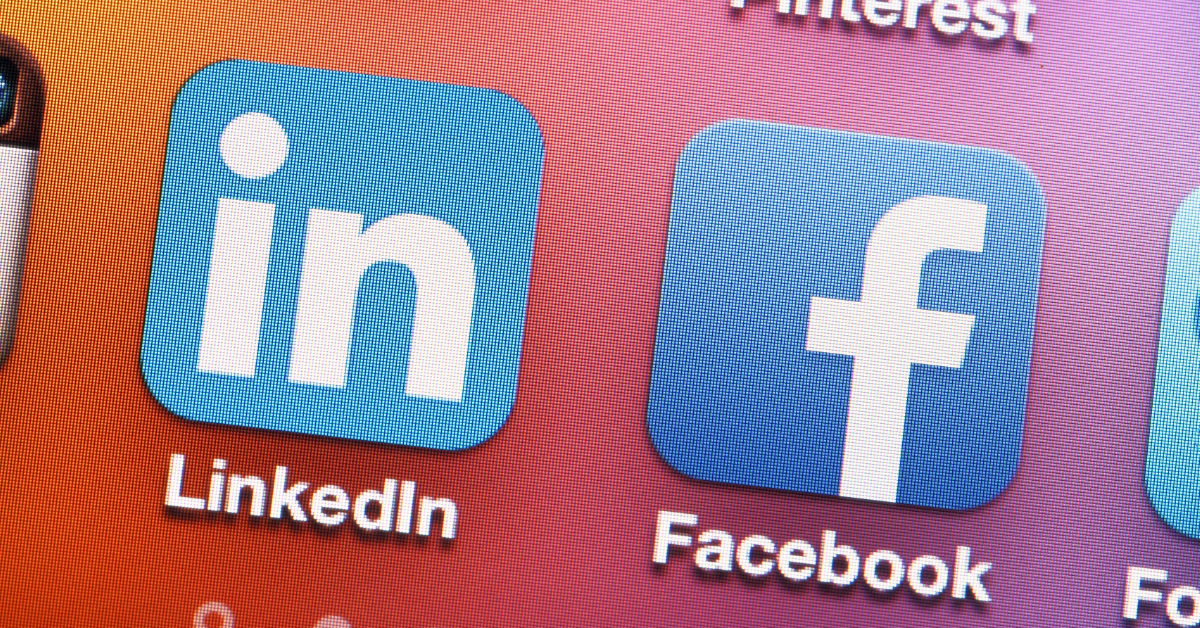Facebook and LinkedIn. One lends itself primarily to professional networking, while the other gets more personal. As a real estate agent, which social network should you be leveraging?
Both.
There are benefits to each of these platforms. While Facebook is best for nurturing personal relationships and reaching a larger audience, LinkedIn is often the more effective lead generation platform, with more precise targeting.
Facebook is designed for business-to-consumer (B2C) marketing—for connecting directly with potential buyers and sellers. Facebook also boasts the largest audience, with 2.8 billion monthly active users (MAU). It’s hard to find someone who isn’t on Facebook.
LinkedIn’s 64.7 million MAU may feel small in comparison, but that’s not necessarily a bad thing. “Since there are fewer people trying to impress the same audience and you don’t have to compete with cute puppies and kittens, LinkedIn can get you a much higher engagement rate than other social media platforms,” writes Emile L’Eplattenier, managing editor of The Close.
LinkedIn’s business-to-business (B2B) leaning also makes it a valuable tool for connecting with other real estate professionals and vendors.
In this post, we’ll take a look at the benefits of both of these platforms.
How Real Estate Agents Can Use Facebook
Generate brand awareness:
Create a Facebook business page for your real estate business, and share engaging content on a regular basis—especially live videos!
According to HootSuite, the best practice is to post one time a day, and never more than twice a day. Try a variety of content and watch your analytics to see what gets the most engagement (views, clicks, likes, and comments). Check out this list of 31 social media post ideas for real estate agents from Social Success Marketing.
Nurture relationships:
With your personal Facebook account, you can work on building your sphere and nurturing your relationships. A great way to do this is by joining local Facebook groups. If you’re a parent, find the local parents group. If you love to cook, find your local foodies group. You might even find that your neighborhood or local government has a Facebook group. Join groups, participate in the conversations, and look for opportunities to meet those people offline.
Add everyone you meet as a Facebook friend. Once their posts are showing up in your timeline, it’s easy to see what they’re up to, comment on their photos, and start a conversation.
And every so often, give them a little reminder that you’re a real estate agent.
Related: How To Generate Real Estate Referrals Through Facebook
Promote listings and generate leads:
Facebook Ads is a great platform for promoting your listings. That’s because Facebook has such a rich collection of user data that can be used to build target audiences. You can build a target audience based on the typical data—like age, job title, location—as well as things like life milestones (date of marriage, birthdate of child, job anniversary, etc.), interests (which are based on pages they’ve liked), behaviors (such as recently visiting your listings webpage), and more.
Your ads don’t always have to promote listings. You can run an ad offering a free download of something you’ve created, such as a First Time Homebuyer’s Guide ebook. Link your ad to a form on your website that leads must fill out before accessing the ebook.
Related: How To Create A High-Converting Facebook Ad for Your Real Estate Business
Other ways to generate leads include creating Facebook Events for your open houses and publishing content on your timeline that drives traffic back to your website.
How Real Estate Agents Can Use LinkedIn
Generate leads:
Since LinkedIn is the social platform people use when they’re in “business mode,” many consumers are turning to LinkedIn to look for an agent to sell their home. As L’Eplattenier points out, “While there are more active users on [Facebook, Twitter, and Instagram], people use [those platforms] to unwind and socialize, not to think about stressful and complicated problems like buying or selling a home.”
What are some tactics for generating leads on LinkedIn? You can run ads (which can be a lot pricier than on Facebook), send InMail to prospective clients, create event pages, and publish valuable content that drives traffic back to your website.
Improve your follow-up:
If you have a LinkedIn Premium account, you can see who is viewing your profile. Imagine seeing that the prospect you spoke with last week just looked at your LinkedIn profile—that would be your cue to give them a call.
Build a network of high net worth people:
Want to sell a multi-million dollar home? Start building your network of high net worth prospects. Look for distant connections you have to local C-suite executives, and start working your way closer to them by connecting with people in their sphere. Or, if you want to message them directly, you can sign up for a LinkedIn Premium or Business account, which allows you to send five or ten InMails each month.
Recruit agents and other staff:
LinkedIn began as a recruitment tool, and it’s still an effective platform for finding new agents and staff for your real estate team. You can post jobs, search for candidates who have relevant skills and experience, and pay for premium features to make the process even more efficient.
Grow your network of vendors
Because LinkedIn is designed as a tool for B2B networking, it’s the perfect platform for connecting with local lenders, contractors, inspection companies, and more.
Position yourself as a thought leader
LinkedIn has a publishing platform where you can essentially write and publish blog posts. This is a great way to create original content attributed to your business’s online presence. Share your wealth of knowledge with the LinkedIn community, position yourself as a thought leader, and earn followers.
Start with Facebook, but get on LinkedIn ASAP
My advice is to small teams or solo agents is to start with Facebook. After all, it has the most monthly active users and a wider variety of consumers. Build your brand page, leverage your personal Facebook profile to build and nurture relationships, and get acquainted with Facebook Ads.
Then, once you’ve established a strong presence on Facebook and have a deep understanding of social media advertising, you can embark on your LinkedIn campaign. Build your company page, share valuable content that establishes you as a thought leader, and use the LinkedIn Ad platform to run highly targeted ads.
However you end up handling your social media marketing, make sure you’re using each platform to its full potential. If you don’t have the capacity to manage both Facebook and LinkedIn, start with just one—and do it really, really well.





